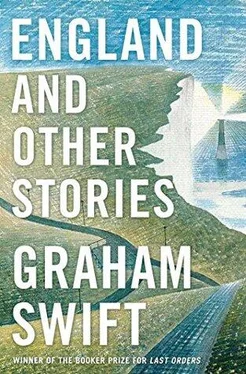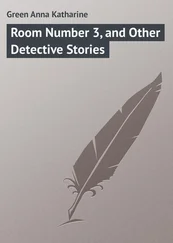It’s how the English are, I learnt this.
They all know my name. It’s over the window. Vangeli. And they know what I do. But how many times do any of them ask, ‘So how did you get to be a barber?’
I tell them, if they ask, I give them the story. I say I was born holding a comb and scissors. .
The truth is it was something I could do. It didn’t need a brain. Then I did my army service. They made me cut the whole camp’s hair. There I met some people! There I got some talk! I gave them all the same shaved-rat’s face. Then I came to this country and ran around for a while with a crazy bunch who’d made the journey before me. Then I settled down to be a barber.
And now I was the same age, give or take, as this man whose head was in my hands. And yes, in however many years it was, I’d seen his hair grow thinner and greyer, more pink showing through. But of course never said.
There’s a joke in the barber’s trade: ‘I’m sorry for your loss.’
When my wife died and I went to see her, I mean in the chapel of rest, she was covered right up to her chin in a cloth. All I saw was a head. You can’t get away from some things.
I went back to snipping. Outside people were hurrying home. Lucas, one of my juniors — it’s what I call them, ‘juniors’—was sweeping the floor.
Your turn to speak, I thought. But he didn’t. For a second or so I thought: He’s just glad of the touch of my fingers, through his hair, on his scalp, the flick of my comb. The smell of shampoo and talc, like the smell of being a baby again.
Vangeli. It means ‘angel of good news’, but I don’t like to explain this to people, because of the jokes. I don’t like to explain that Irene, my wife’s name, is really a Greek name too. It means ‘peace’.
Peace!
There’s another moment when you reach for the hand mirror and hold it up to the back of their heads. And once again you have to look, both of you, straight into the big mirror, as if you’re a pair who go together. It’s the moment when it’s almost over. Then there’s the moment when you pull away the cloth and brush them down and they stand up and you give them the paper towel, then they wipe their necks, put on their jackets and pay. You give them back any change, if they don’t tell you to keep it.
Then there’s the moment when they turn, and you — or at least I always do it — give them a little pat, a little pat that turns into a squeeze, just half a second, on one shoulder. It means thank you, thank you for the tip, but it also means: there, that’s you done, that’s you all fresh and ready. Now go and live your life.
Roehampton, Surrey
House of Eliab Harvey
7 thFebruary, 1649
Colonel Edward Francis
The Council of Officers
Westminster
My dear cousin,
Well, Ned (if I may still so call you and if you will deign to hear from me), we have lived through extraordinary times. Were there ever such times as these? And now I must cede to you that you are of the winning party and may lord it over me who was the close attendant of kings, nay of our late — of our very late — king. Or would you have me name him, if I have it right, ‘tyrant, traitor, murderer’? Would you daub me with the same charges, for having been so privy to His Majesty — but must I not call him that? — for having ministered to his agues, fevers and coughs? Would you have me place my own head upon the block for having been such a bodily accomplice to tyranny? Then it would be seen, would it not, if my argument of the blood’s motion held true? Physician, prove thyself!
But was it not proven when that royal blood — may we even call it that? — spurted forth but a week ago at Whitehall? And is it not proven when any man’s head or limb is severed from his body, as has been the lot of many men — nay, of women and children — in these late times? A king is but a man like any other. Has it needed seven years of war and a trial by Parliament to determine the matter, when any such as I might have attested to it? Anatomy is no respecter. I have dissected criminals and examined kings. Does it need any special statute to claim the one might be the other?
That, Ned, was my grounding and my ground, long before those of your party set out to curb the King’s powers, then overthrow him. There are tyrannies and tyrannies, and treacheries and treacheries. There are some even now of my party — I mean among the party of physicians — who would not blench or lament to see my old head removed from my body, to see me cut down for having raised my standard against King Galen. There are many kinds of majesty and rebellion. We were but boys, Ned, when the Armada closed upon our shores, but would we not have rallied round our monarch? Rally, I say! We were more than half the age we have now when Ralegh’s head was severed from his body. Did we not then both feel not a little of the sharpness of the axe that smote him? There were many of your party for whom that day, I dare say, marked a severance. It was their beginning, their pretext. So it was with you. It was the beginning, I dare say, of our own severance.
Yet did we not feel also, if we are truthful, that there is a motion, a fluctuation — may not I use such terms? — in the fortunes of men, an ebb and flow, a rise and fall, beyond all issue of government or justice; and that it is into these unrestrained tides — we knew it by then — we enter as we enter the world? We set our little skiffs upon them, as Ralegh set many a fine vessel upon the waters of his ambition. Should I have stepped in, Ned, to bid my former master James withhold his warrant upon so worthy a head? I was but his physician, not his counsellor, and had been hardly a year in his service. And Ralegh went to his death bravely and nobly, as did, but these seven days past, my other late master Charles.
Is that what we must call him now, only Charles? Is that the ordinance? As you and I may still call each other — or so I trust — but Ned and Will, boys who once played at knucklebones and did battle with the wooden swords of our rulers at Canterbury. And quaked in our shoes, no doubt, at the wrath of our masters, or spoke impudence about them, behind our hands, when their gowned backs were turned. They were only our schoolmasters, but it was all our world. Such tyranny, such subjection. Such fledgling revolt. Such nursing of our destinies. And it was the King ’s School, mark you. Though it was still the reign, long to continue, of, as we would call her, even in our prayers, Our Sovereign Lady Elizabeth.
What times, Ned, what times. ‘That one might read the book of fate and see the revolution of the times’—do I have it correctly? Is it not King Henry IV, deposer himself of kings? But it was you who attended the playhouses and, if I know you as I knew you in your youth, no doubt other houses as well, while I attended my lectures at Padua. You who are now of God’s militia, while I, to pass the hours, read more of the poets than I read of the Bible. Is that to speak treason?
That, surely, was our first parting, though we would write much to each other. You were for the law, I was for physic. You were for the Middle Temple, I was for Padua. Was it not indeed the seed of all our future differences and of future offices we would hold as then undiscovered to us? Yet that common seed, that common stirring of the blood — quite so! — was ambition. Should we deny it? I was for anatomy, you, with your lawyer’s trenchancy, were for the bones of human contention. It was always in you, Ned, though it was your profession then to fight but with words. You had the mark of a swordsman. One day you might draw a true sword. I had only a scalpel. Even with your wooden ruler you were more often than not, as I recall, the victor. Now I must own again that you, and those of your kind, are my victor. Nay, my ruler! Truly I live now under your rule.
Читать дальше












